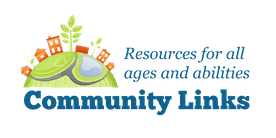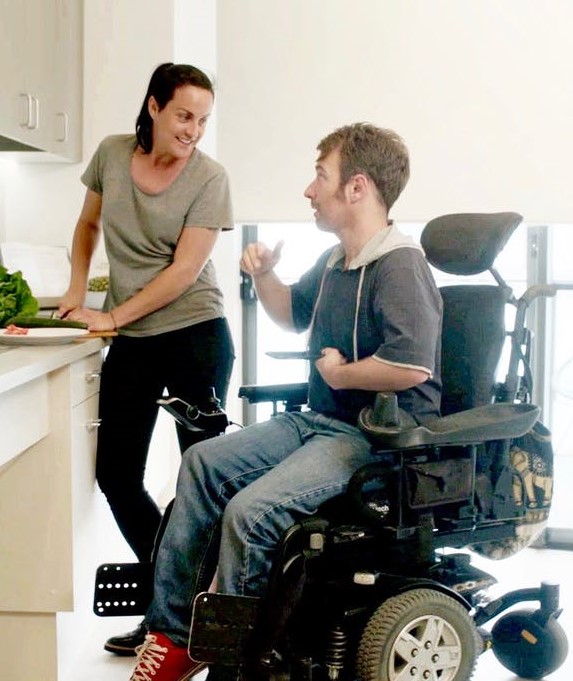Living with one of multiple disabilities is such a broad topic that the need for individualized housing plans and multiple housing options is essential. One of the most popular housing outcomes discussed for adults with disabilities is Independent Living. Independent Living involves much more than just living on your own. While we will discuss this option, there are many other options and many other resources describing these options. We hope to compile these housing options and link you to sites that provide you with a thorough understanding of them, so that you can have educated discussions with your loved ones and make informed decisions regarding where they will live after school age and into adulthood. Additionally, visit our “Disability Law on Housing” page to understand how the law describes housing for individuals with disabilities.
First, read this article titled “Housing Options for Adults with Special Needs” from Special Needs Answers, as it will be helpful in understanding the rest of this page. As the title suggests, it provides several housing options and a brief description for each. We included some of the housing options to add links to additional information and local resources in our headers below. Additionally, check out this section from the PACER Center titled “How to get started” under their Housing Project. It gives insights into housing options, funding options, and housing rights that we used to pull important topics for you. Although some of the topics covered are similar to those in this section, the PACER section is written for Minnesota laws and organizations, and we need to keep in mind that some definitions and laws are different in Pennsylvania.

Living with Parents or Other Family Members
This option is not ideal based on several reasons mentioned in the article above. Living with parents or other family members can be isolating, taxing on the caregivers, and leave adults with disabilities ill-equipped for what the future may hold. Moreover, according to the Easter Seals’ Living with Disabilities study, roughly 69% of adults with disabilities live with their parents or guardians. While this option is frowned upon, it is a common reality, and the article above mentions that you can get Medicaid funding as a caregiver. Visit the How to Receive Financial Compensation via Medicaid to Provide Care for a Loved One page from the American Council on Aging titled to learn more. Also, be sure to check out our adult Medicaid waivers page for local contact information. We would like to direct you to article “Who Will Care for my Special Needs Adult Child?” from the Extra Mile of the Hartford. Here, you can find insights into why so many adults with disabilities are living with their parents after school age, which can help you become a better advocate for your child’s housing situation. Continue reading to learn about additional housing options.
Independent Living (IL)
To avoid redundancy, we would like to direct you to the Center for Parent Information & Resources’ page on Independent Living, which provides thorough knowledge on IL, including what it is, who’s involved, and how to obtain it. In addition to this national-level resource, be sure to check out the PA Statewide Independent Living Council (PASILC) for information on IL advocacy from a legal perspective and on goals for IL set by the state. The site also provides helpful resources that are relevant at the state and federal levels. Finally, we want to direct you to the Center for Independent Living of Central PA (CILCP) where you can find specific programs, services, and consultations offered in Cumberland, Perry, and Dauphin Counties.
Group Homes/Community Living
There is no one unified definition of what group homes are. As the article above mentions, they can vary in terms of the services they provide, but a commonality among group homes is that the residents are afforded a social setting to live in. For more information on group homes, we want to direct you to this page titled “Group Homes for the Disabled” from VeryWell Health. It provides key insights into advocacy (making sure the group home is a good fit) and additional thoughts on what classifies as a group home. In Pennsylvania, group homes match what the PA Department of Human Services (DHS) calls Personal Care Homes (PCHs). We encourage you to visit the PCH page, which explains them and what they entail. The site also provides useful information for advocacy when choosing PCHs, and links you to their Personal Care Home Directory. To use the directory, search in the service code box for whichever service you are looking to find and input your county. If you have more questions, check out the Personal Care Home FAQs page from the PA DHS website. This directory is good for referral, but it is not comprehensive. For additional resources on group homes, visit our page on County MH/IDD Offices, which includes more information on the services provided by these offices, and look into our Community Directory.
Assisted Living
This is yet another type of housing that is not well defined due to often being used interchangeably with group homes, PCHs, and community living. As a result, there is not much information to be added other than acknowledging that they are often used interchangeably, which will hopefully eliminate some confusion. However, we do encourage you to check out this blog post from Messiah Lifeways titled “A Retrospective of Assisted Living vs. Personal Care in PA,” which does lay out concrete differences between the two despite their often-interchangeable usage.
Lifesharing
The premise behind lifesharing is unique, involving individuals staying with host families who have agreed to open their home to them to provide a place to live, in-home supports, and an opportunity to form enduring relationships. There are multiple organizations that help with the matching process, and lifesharing in general is overseen by the PA DHS. We encourage you to visit their site on Personal Care Homes for additional information on the ideology of lifesharing. Additionally, your county MH/IDD office is a helpful resource as they can get you connected with the organizations that are relevant to you.


